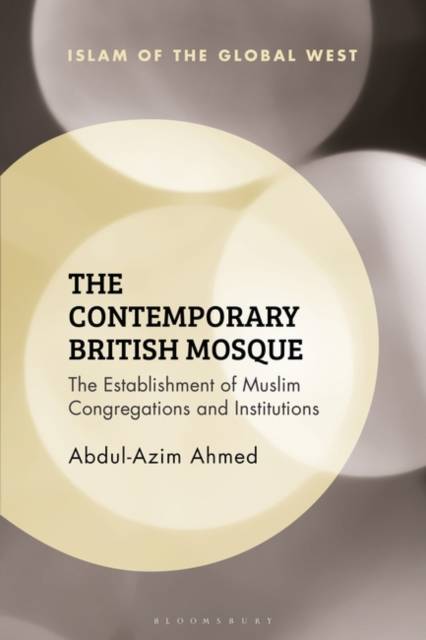
- Afhalen na 1 uur in een winkel met voorraad
- Gratis thuislevering in België vanaf € 30
- Ruim aanbod met 7 miljoen producten
- Afhalen na 1 uur in een winkel met voorraad
- Gratis thuislevering in België vanaf € 30
- Ruim aanbod met 7 miljoen producten
Zoeken
The Contemporary British Mosque
The Establishment of Muslim Congregations and Institutions
Abdul-Azim Ahmed
€ 203,95
+ 407 punten
Omschrijving
Repositioning mosques as social, cultural and political spaces, this book provides new insights on key contemporary debates, the religious identity of Britain, secularisation, the far-right and terrorism, and gender equality.
Exploring the story of the British mosque, from house conversions to grand works of architecture, and the role they play in public life, Abdul-Azim Ahmed details the establishment of early mosques during the era of Empire, and the rapid growth in the years following the Second World War. Ahmed takes a sociological approach to this study, drawing on fieldwork and ethnographic case-studies, alongside reviews of databases and historical documents to provide perspectives on the British mosque from the congregants themselves. The Muslim congregation, a poorly understood and often overlooked dimension of religion in Britain, is examined, and issues of diversity, denomination, sacredness, and society are explored.Specificaties
Betrokkenen
- Auteur(s):
- Uitgeverij:
Inhoud
- Aantal bladzijden:
- 240
- Taal:
- Engels
- Reeks:
Eigenschappen
- Productcode (EAN):
- 9781350258976
- Verschijningsdatum:
- 18/04/2024
- Uitvoering:
- Hardcover
- Formaat:
- Genaaid
- Afmetingen:
- 156 mm x 234 mm
- Gewicht:
- 508 g

Alleen bij Standaard Boekhandel
+ 407 punten op je klantenkaart van Standaard Boekhandel
Beoordelingen
We publiceren alleen reviews die voldoen aan de voorwaarden voor reviews. Bekijk onze voorwaarden voor reviews.







